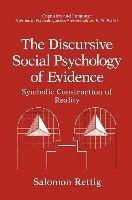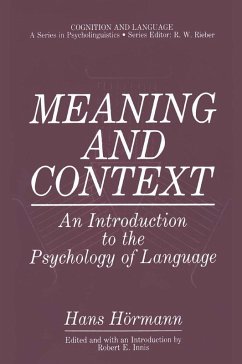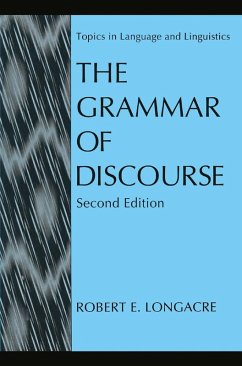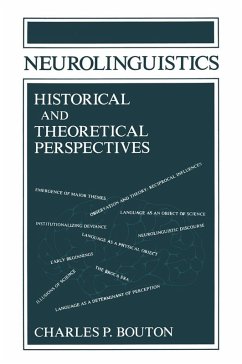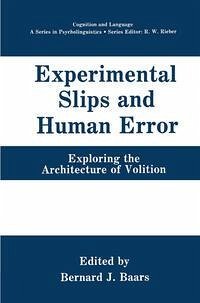
Experimental Slips and Human Error (eBook, PDF)
Exploring the Architecture of Volition
Redaktion: Baars, Bernard J.
Versandkostenfrei!
Sofort per Download lieferbar
112,95 €
inkl. MwSt.
Weitere Ausgaben:

PAYBACK Punkte
56 °P sammeln!
Whereas most humans spend their time trying to get things right, psycholo gists are perversely dedicated to error. Errors are extensively used to in vestigate perception, memory, and performance; some clinicians study errors like tea leaves for clues to unconscious motives; and this volume presents the work of researchers who, in an excess of perversity, actually cause people to make predictable errors in speech and action. Some reasons for this oddity are clear. Errors seem to stand at the nexus of many deep-psychological questions. The very concept of error presupposes a goal or criterion by...
Whereas most humans spend their time trying to get things right, psycholo gists are perversely dedicated to error. Errors are extensively used to in vestigate perception, memory, and performance; some clinicians study errors like tea leaves for clues to unconscious motives; and this volume presents the work of researchers who, in an excess of perversity, actually cause people to make predictable errors in speech and action. Some reasons for this oddity are clear. Errors seem to stand at the nexus of many deep-psychological questions. The very concept of error presupposes a goal or criterion by comparison to which an error is an error; and goals bring in the foundation issues of control, motivation, and volition (Baars, 1987, 1988; Wiener, 1961). Errors serve to measure the quality of performance in learning, in expert knowledge, and in brain damage and other dysfunctional states; and by surprising us, they often call attention to phenomena we might otherwise take for granted. Errors also seem to reveal the "natural joints" in perception, language, memory, and problem solving-revealing units that may otherwise be invisible (e. g. , MacKay, 1981; Miller, 1956; Newell & Simon, 1972; Treisman & Gelade, 1980).
Dieser Download kann aus rechtlichen Gründen nur mit Rechnungsadresse in A, B, BG, CY, CZ, D, DK, EW, E, FIN, F, GR, HR, H, IRL, I, LT, L, LR, M, NL, PL, P, R, S, SLO, SK ausgeliefert werden.






